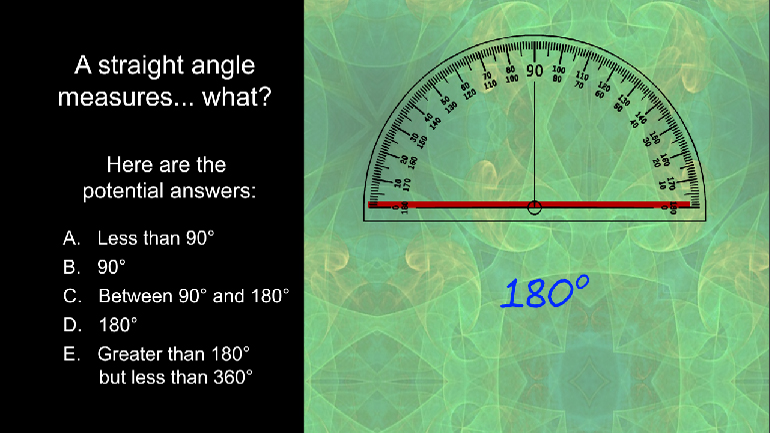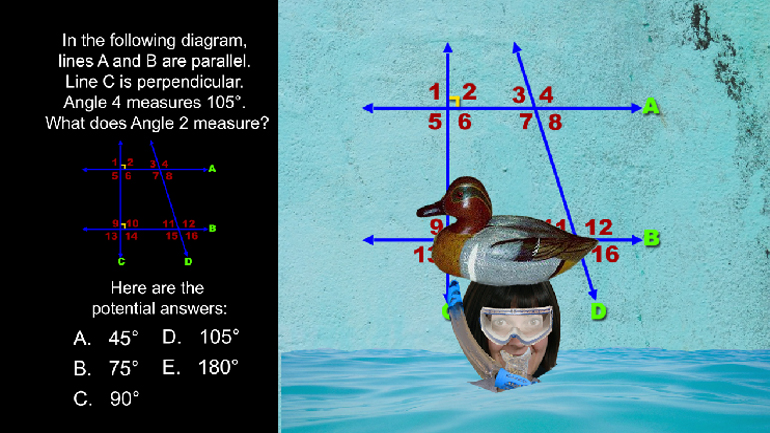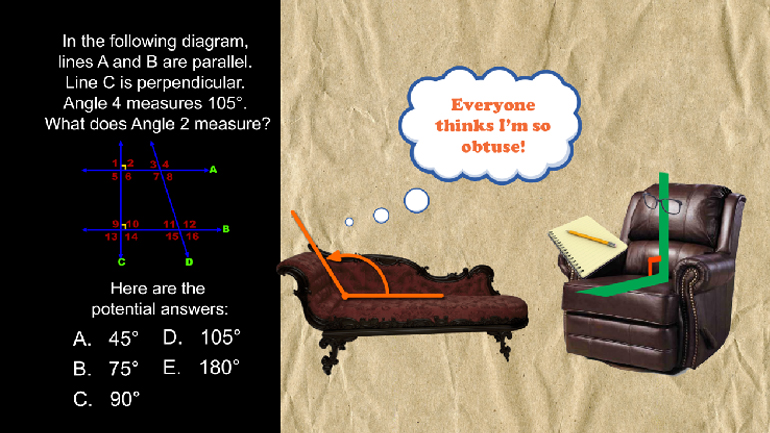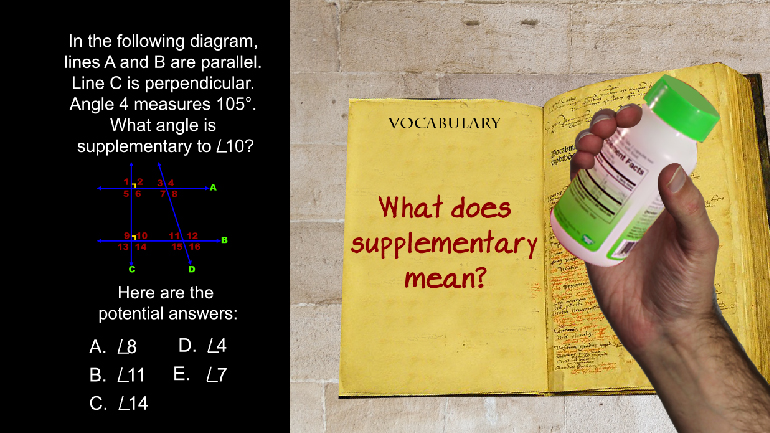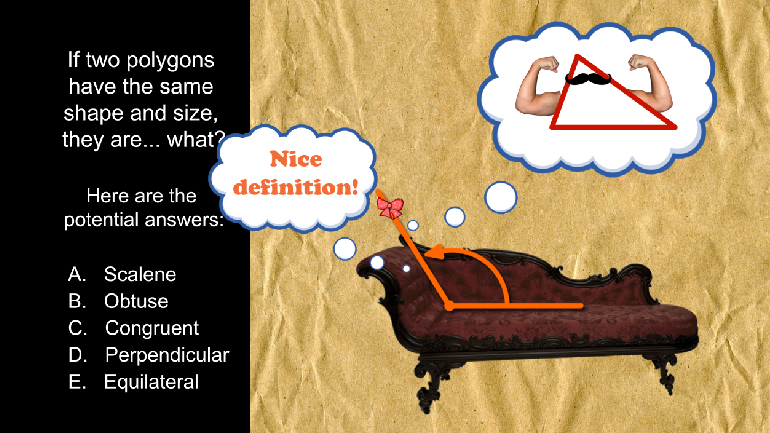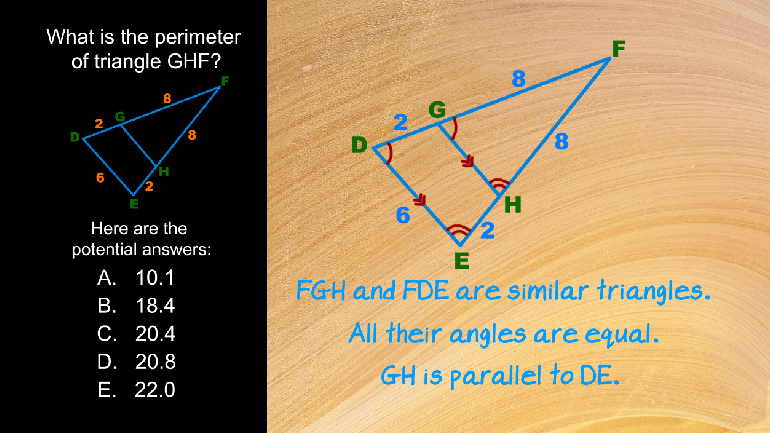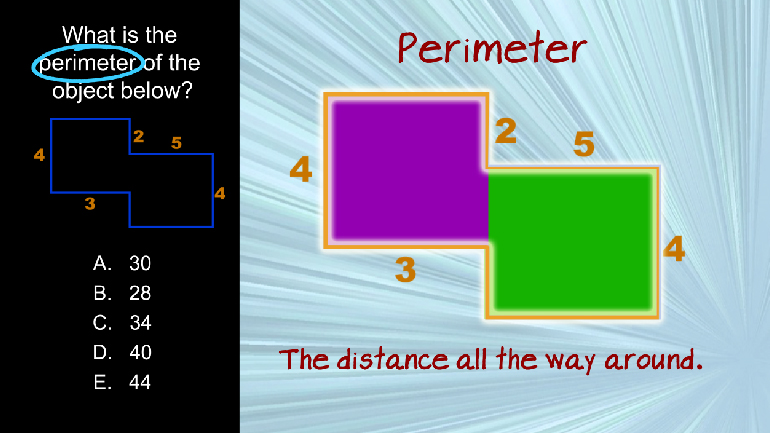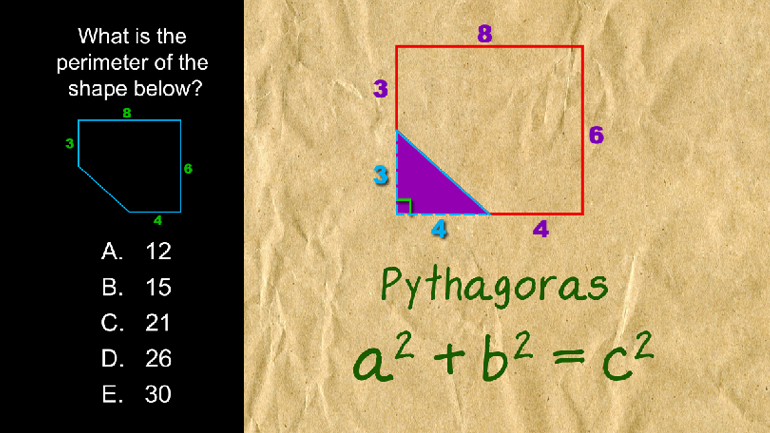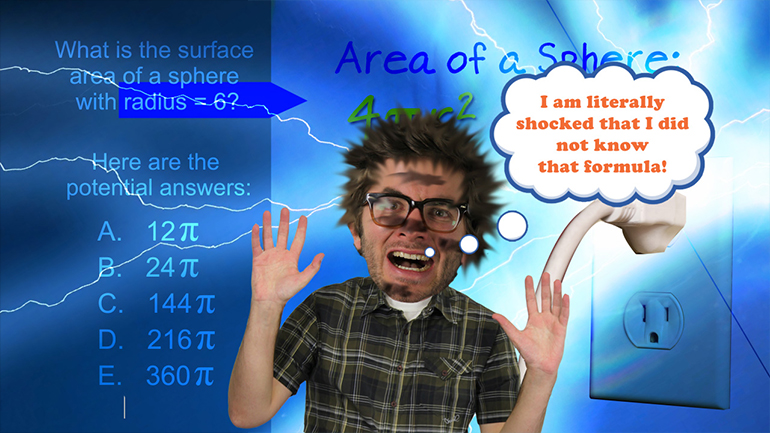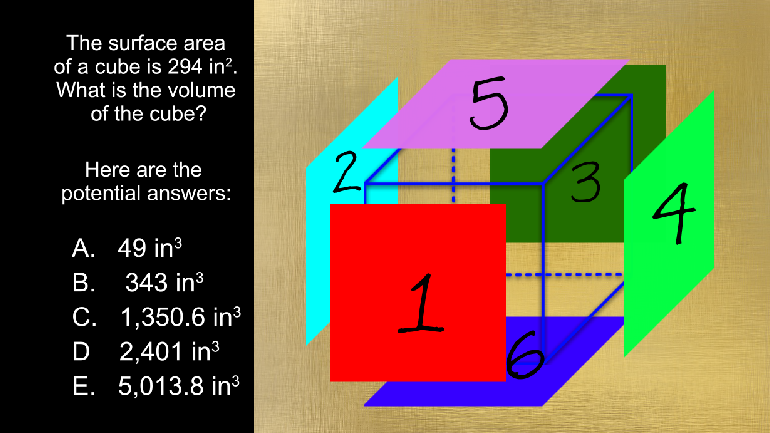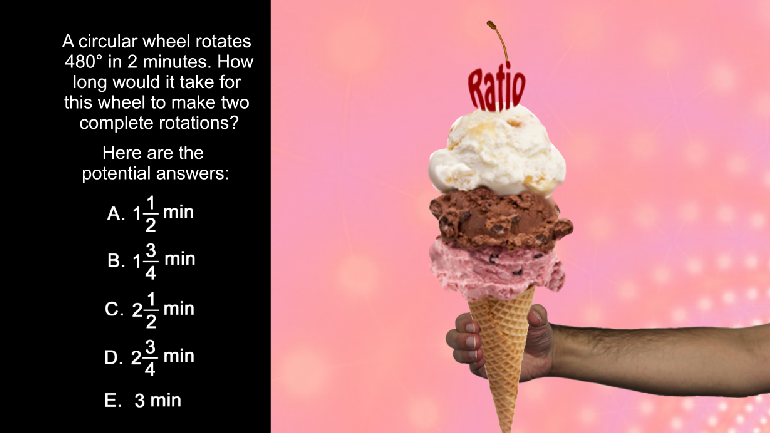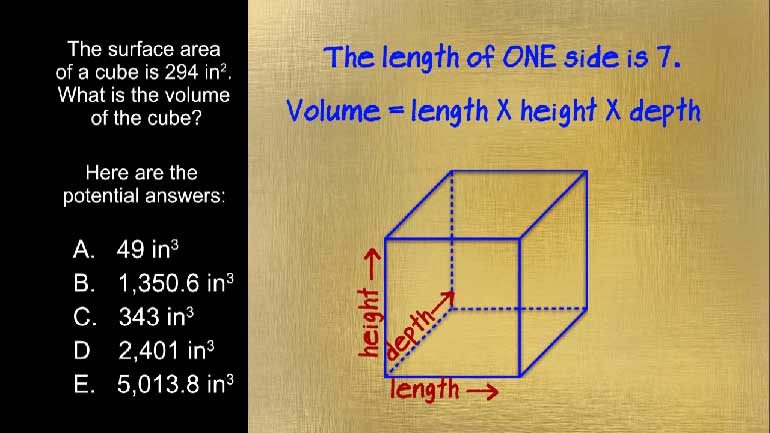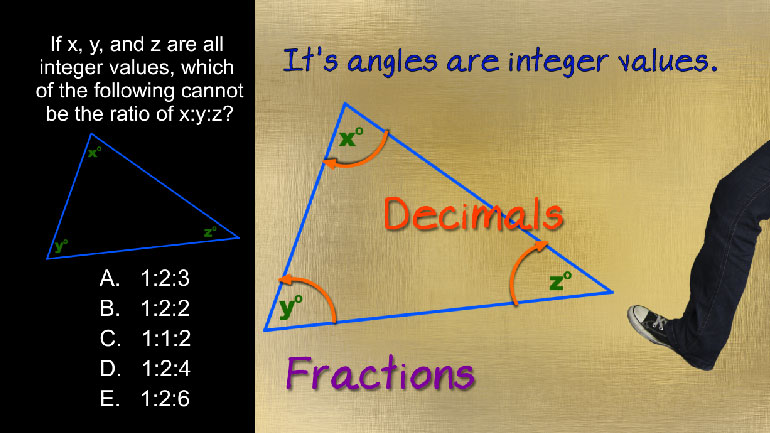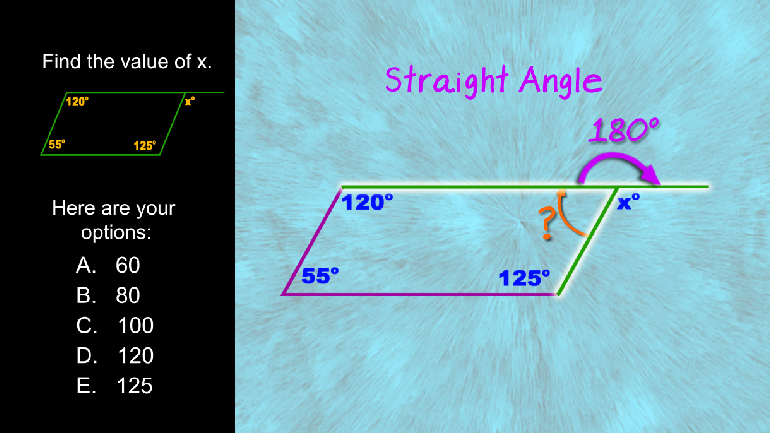ShmoopTube
Where Monty Python meets your 10th grade teacher.
Search Thousands of Shmoop Videos
Plane Geometry Videos 26 videos
Math Plane Geometry: Drill 1, Problem 1. What does a straight angle measure?
ACT Math: Plane Geometry Drill 1, Problem 2. In the following diagram, what does Angle 2 measure?
ACT Math: Plane Geometry Drill 1, Problem 3. What does Angle 15 measure in the given diagram?
ACT Math 5.3 Plane Geometry 289 Views
Share It!
Description:
ACT Math: Plane Geometry Drill 5, Problem 3. What is the measure of Angle GHJ?
- Plane Geometry / Angles
- Product Type / ACT Math
- Foreign Language / Arabic Subtitled
- Foreign Language / Korean Subtitled
- Foreign Language / Spanish Subtitled
- Foreign Language / Chinese Subtitled
- Geometry / Congruence and constructions
- Geometry / Make geometric constructions
- Congruence / Make geometric constructions
- Plane Geometry / Properties of plane figures
- Plane Geometry / The concept of proof and proof techniques
Transcript
- 00:02
Here's your shmoop du jour.
- 00:04
Line FG is parallel to Line IJ. If Angle F =
- 00:08
40°, and Angle I = 85°, what is the measure of Angle GHJ?
- 00:15
And here are your potential answers...
- 00:19
Alright, we're told that angle F = 40°,
Full Transcript
- 00:22
and angle I = 85°, and they want us to use that information to find the measure of GHJ.
- 00:28
First we should try to find GHJ's supplementary
- 00:32
angle, the one that'll form a straight angle and help it add up to 180 degrees... either
- 00:38
angle IHJ or FHG will do. Let's find angle FHG, because... well, it's closer
- 00:49
Since FG and IJ are parallel, angles I and G are alternate interior angles.
- 00:56
In other words, they're on opposite-inside sides of the transversal, the line that cuts
- 01:01
across two parallel lines. That means that they are congruent, or the
- 01:06
same, and since I measures 85 degrees, that means G does too.
- 01:11
We already know angle F, so now we just have to solve for the final angle in the triangle,
- 01:15
which is angle FHG. To do that, we add angles F and G, and subtract that from 180 degrees.
- 01:22
We get 55 degrees as our answer.
- 01:24
That's only the supplementary angle, remember... our last step is to subtract 55 from 180.
- 01:31
We get 125 degrees, which means that our answer is C.
Related Videos
ACT Math: Plane Geometry Drill 3, Problem 1. What is the area of the trapezoid shape in the video?
ACT Math: Coordinate Geometry Drill 1, Problem 1. Which inequality is expressed by the number line?
ACT Math: Intermediate Algebra: Drill 3, Problem 1. Find the fifth number in the series.
Sure, Romeo and Juliet were a great pair, but they don't hold a candle to linear pairs. Find out more by clicking play.
This video explains the vertical angle theorem. Learn about supplementary angles, adjacent angles, and linear pairs, plus bungee jumping. Intersect...
